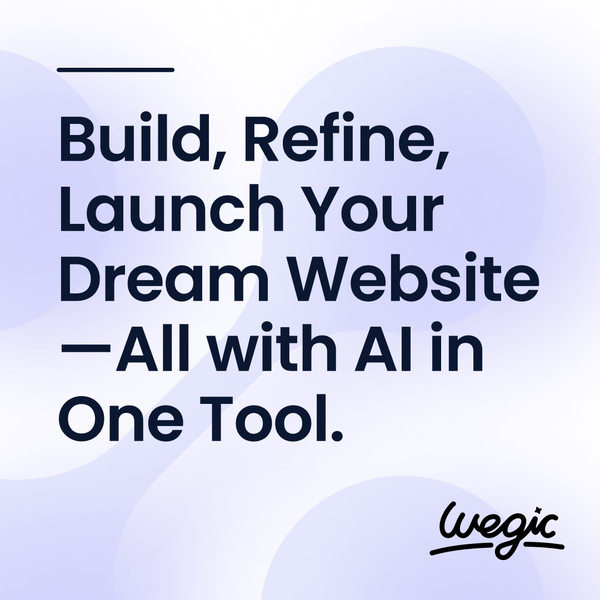Element Meaning in Web Development Trends
Element Meaning in Web Development FAQ
Element Meaning in Web Development
Creating a membership site can be a great way to generate recurring revenue and build a community around your content or offerings. To create a successful membership site, you need a reliable website builder that is specifically designed for membership sites. In this article, we will explore some of the best website builders for membership sites and discuss their features and benefits.

A Beginner’s Guide to Element Meaning in Web Development
Element Meaning in Web Development
A web designer’s primary goal is to create a visually appealing website that engages users and encourages them to explore further. This involves using a combination of technical skills and creativity to design a layout that is both aesthetically pleasing and easy to navigate. Web designers must also have a good understanding of user experience (UX) design principles to ensure that the website is intuitive and user-friendly.
In addition to creating the overall design of a website, web designers are also responsible for implementing various features and functionalities. This includes integrating multimedia elements such as images, videos, and animations, as well as creating interactive elements like buttons, forms, and drop-down menus. Web designers may also be responsible for optimizing the website for search engines (SEO) to help improve its visibility and ranking in search results.
To be successful as a web designer, one must possess a strong foundation in graphic design principles, as well as a good understanding of web development technologies such as HTML, CSS, and JavaScript. These skills are essential for creating visually appealing and responsive websites that work seamlessly across different devices and browsers.
Web designers often work closely with clients or project managers to understand their requirements and objectives for the website. This involves conducting research, brainstorming ideas, and creating mock-ups or wireframes to present to the client for review and feedback. Once the design is approved, web designers then proceed to code and develop the website using various programming languages and tools.
There are many different types of web designers, each with their own area of expertise. For example, graphic designers specialize in creating visual elements such as logos, icons, and illustrations, while user interface (UI) designers focus on designing the layout and overall look and feel of a website. User experience (UX) designers, on the other hand, are more concerned with how users interact with the website and how to improve their overall experience.
The role of a web designer can vary depending on the size and scope of the project. For small businesses or individuals looking to create a simple website, a web designer may be responsible for all aspects of the design and development process. However, for larger, more complex projects, web designers may work as part of a team alongside web developers, content creators, and digital marketers to bring the website to life.
In addition to technical skills, successful web designers also possess strong communication and problem-solving abilities. They must be able to effectively communicate their ideas and collaborate with others to bring a project to completion. Web designers must also be able to adapt to changes and solve problems quickly and efficiently, as technology and design trends are constantly evolving.
1. Text Editors
One of the most basic tools for web development is a text editor. Text editors are used to write and edit code for websites. There are many different text editors available, each with its own set of features and capabilities. Some popular text editors include Sublime Text, Atom, and Visual Studio Code. These text editors offer features like syntax highlighting, code completion, and easy integration with other tools.
2. Integrated Development Environments (IDEs)
Integrated Development Environments (IDEs) are comprehensive tools that provide everything a developer needs to build websites. IDEs typically include a text editor, debugger, compiler, and other tools for building and deploying websites. Some popular IDEs for web development include IntelliJ IDEA, Eclipse, and NetBeans. These tools are ideal for developers working on complex projects that require advanced features and capabilities.
3. Version Control Systems
Version Control Systems are essential tools for tracking changes to code and collaborating with other developers. Version Control Systems like Git allow developers to track changes to their code, revert to previous versions, and merge code from different developers. Git is a widely used version control system that is easy to learn and offers powerful features like branching and merging.
4. Browser Developer Tools
Browser Developer Tools are built-in tools that allow developers to inspect and debug websites directly in the browser. These tools provide information about the structure, layout, and performance of websites. Browser Developer Tools also allow developers to test and optimize websites for different devices and screen sizes. Popular browser developer tools include Chrome DevTools, Firefox Developer Tools, and Safari Web Inspector.
5. Package Managers
Package Managers are tools that help developers manage dependencies and libraries in their projects. Package Managers like npm (Node Package Manager) and Yarn allow developers to easily install, update, and remove libraries in their projects. Package Managers also help developers manage different versions of libraries and ensure that all dependencies are up to date.
6. Task Runners
Task Runners are tools that automate repetitive tasks in the web development process. Task Runners like Gulp and Grunt allow developers to automate tasks like minification, concatenation, and compiling code. Task Runners save time and effort by streamlining the development process and making it easier to build and deploy websites.
7. CSS Preprocessors
CSS Preprocessors are tools that extend the functionality of CSS by adding features like variables, mixins, and nesting. CSS Preprocessors like Sass and Less help developers write more organized and maintainable CSS code. These tools make it easier to style websites and ensure consistency across different pages and components.
8. Code Editors
Code Editors are specialized tools for writing and editing code. Code Editors like CodePen and JSFiddle provide a lightweight and easy-to-use environment for writing HTML, CSS, and JavaScript code. Code Editors are ideal for quick prototyping and testing code snippets before integrating them into larger projects.
9. Performance Monitoring Tools
Performance Monitoring Tools help developers identify and fix performance issues on websites. Tools like Lighthouse, PageSpeed Insights, and WebPageTest analyze websites and provide recommendations for improving performance. Performance Monitoring Tools help developers optimize websites for speed, responsiveness, and user experience.
10. Cross-Browser Testing Tools
Cross-Browser Testing Tools help developers ensure that websites look and work correctly in different web browsers. Tools like BrowserStack and CrossBrowserTesting allow developers to test websites on multiple browsers and devices simultaneously. Cross-Browser Testing Tools help developers identify and fix compatibility issues that may arise when users access websites from different browsers and devices.

A Beginner’s Guide to Element Meaning in Web Development
Element Meaning in Web Development
In conclusion, AI web developers are a crucial part of the technological revolution that is transforming the field of web development. These professionals have a deep understanding of AI algorithms, machine learning, natural language processing, and other AI technologies that enable them to create websites that are smarter, more intuitive, and more user-friendly. By leveraging AI technologies, AI web developers are pushing the boundaries of what is possible in web development, creating websites that can think, learn, and adapt to user preferences. If you are looking to create innovative and dynamic websites that stand out in a crowded marketplace, consider working with an AI web developer who can help you harness the power of AI technologies to achieve your goals.


